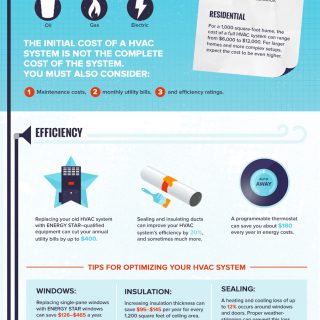The Future Of Home Heating - Exactly How Heat Pump Modern Technology Is Evolving
The Future Of Home Heating - Exactly How Heat Pump Modern Technology Is Evolving
Blog Article
Author-Svensson Dominguez
Heat pumps will certainly be a vital modern technology for decarbonising home heating. In a circumstance constant with governments' revealed energy and environment commitments, their global capacity increases by 2030, while their share in heating rises to one-quarter.
They function best in well-insulated homes and rely upon electrical power, which can be provided from an eco-friendly power grid. whole-home comfort christchurch are making them a lot more efficient, smarter and less expensive.
Fuel Cells
Heatpump utilize a compressor, refrigerant, coils and fans to relocate the air and warmth in homes and home appliances. They can be powered by solar power or power from the grid. They have been gaining appeal as a result of their inexpensive, peaceful procedure and the capability to create electrical energy throughout peak power demand.
Some business, like IdaTech and BG MicroGen, are working with fuel cells for home heating. These microgenerators can change a gas central heating boiler and produce several of a home's electric needs with a connection to the electrical energy grid for the remainder.
However there are factors to be skeptical of using hydrogen for home heating, Rosenow claims. It would certainly be costly and inefficient compared to various other modern technologies, and it would add to carbon exhausts.
Smart and Connected Technologies
Smart home innovation enables house owners to link and control their devices from another location with using mobile phone applications. For example, wise thermostats can discover your home heating preferences and automatically adjust to maximize power intake. Smart lights systems can be managed with voice commands and immediately shut off lights when you leave the space, decreasing energy waste. And wise plugs can monitor and handle your electrical usage, allowing you to identify and limit energy-hungry home appliances.
The tech-savvy home shown in Carina's meeting is an excellent image of how passengers reconfigure room heating methods in the light of brand-new smart home innovations. They rely upon the tools' automatic features to accomplish everyday changes and regard them as a practical methods of performing their heating practices. Thus, they see no reason to adjust their practices further in order to enable versatility in their home power need, and treatments targeting at doing so might encounter resistance from these houses.
Power
Considering that heating up homes make up 13% people emissions, a switch to cleaner options could make a huge distinction. Yet the modern technology encounters difficulties: It's costly and requires substantial home renovations. And it's not constantly compatible with renewable energy resources, such as solar and wind.
Up until recently, electric heat pumps were also costly to compete with gas versions in many markets. Yet new advancements in design and products are making them a lot more cost effective. And far better chilly climate performance is allowing them to operate well even in subzero temperature levels.
The next action in decarbonising heating may be the use of warm networks, which draw heat from a main source, such as a close-by river or sea inlet, and distribute it to a network of homes or structures. That would decrease carbon discharges and permit households to benefit from renewable energy, such as environment-friendly electrical energy from a grid provided by renewables. This option would certainly be much less expensive than switching over to hydrogen, a nonrenewable fuel source that needs brand-new infrastructure and would just reduce carbon dioxide discharges by 5 percent if coupled with enhanced home insulation.
concealed air conditioning units
As electrical power prices go down, we're starting to see the exact same pattern in home heating that has driven electrical cars and trucks right into the mainstream-- yet at an also faster rate. The strong environment instance for impressive homes has actually been pressed additionally by brand-new research study.
Renewables account for a significant share of modern heat consumption, but have been provided limited plan interest internationally compared to various other end-use sectors-- and also less focus than electrical energy has. Partially, this mirrors a mix of customer inertia, divided motivations and, in many nations, subsidies for nonrenewable fuel sources.
New modern technologies can make the change simpler. For instance, heat pumps can be made more power reliable by replacing old R-22 refrigerants with brand-new ones that don't have the high GWPs of their precursors. heat pump supply and install imagine area systems that draw heat from a neighboring river or sea inlet, like a Norwegian fjord. The warm water can after that be made use of for heating and cooling in an area.